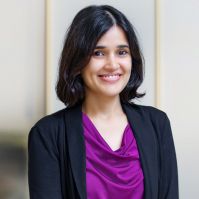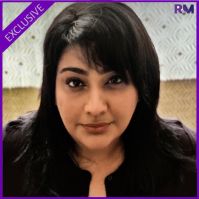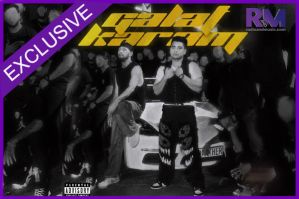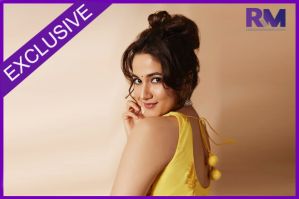Mahendra Kapoor - You cannot sing a song unprepared and expect it to do well

After completing almost five decades in the field of playback singing, the first National Award (when it was instituted) winner in 1968 for the song 'Mere Desh Ki Dharti,'Mahendra Kapoor celebrated his 74th birthday on 9 January 2008.
Even now, he is enthusiastic about practising and teaching music. Radioandmusic.com's Aaishwari Chouhan involves him in a frank conversation.
Excerpts from the interview:
How did playback singing happen to you at the time when Bollywood itself was in an embryonic stage and when playback singing wasn't a career?
I was one month old when my father brought us to Mumbai from Amritsar. I started learning classical music very early in life. My first song was for the film Madmast in 1952. I went to St Xavier's College and after I graduated, I won the All India Metro Murphy Singing Competiton. The prize at that time was probably one song or just one line, whatever the composer could manage for the winners and after that, I moved on to sing for V Shantaram's Navrang.
Most of your songs were for B R Chopra's films and for actor/producer Manoj Kumar. Was that intentional or a big coincidence?
It was a co-incidence for sure. But in those days, if one song became popular, the producer would sign the singer for his next films as well. And hence, one singer would repeatedly get movies from the same banner.
For the film Upkaar, the song Mere Desh Ki Dharti has won you the national award for best male playback singer. How did this honour come across to you?
I certainly didn't expect such an honour. But I feel good about it!
Your work has also won you international acclaim. How does it feel to connect to your international fans?
I feel great when I look back at my work and when I see the kind of recognition my work has got. I am really grateful to everyone for bestowing me with so much of love and appreciation.
Your contribution to Marathi and Gujarati playback singing has also been quite substantial. Being originally from Amritsar, how do you manage to sing Marathi and Gujarati songs so well?
IWhen I was at college, I had a lot of Marathi and Gujarati friends. It was because of them that I got interested in learning the languages and finally, contributing to the music industry of the regional languages as well.
So, how easy is it for you to sing in languages other than Hindi?
Well, if for singing a Hindi song I need one rehearsal, it takes me two-three rehearsals to sing a regional language song. That's the only difference! But everyone should note the fact that any song can come to the singer very well only after practising it enough. You cannot sing a song unprepared and expect it to do well.
What difference do you see in the present day playback singing and playback singing at your time?
If I look at it practically, today the times have progressed a lot. Earlier, we had a different orchestra and a different singer every time. And the orchestra would follow the singer. This was a major drawback in my times, which I see is not there today.
How do you feel about the way the music scenario is progressing in India?
I feel really sad and heart-broken looking at the way the music scenario in India is progressing. Today, the composers don't follow melody. They follow only the beat and that's why the essence of making music is lost. People who make music shouldn't forget that the real melody is our music and we shouldn't destroy it.
Which are your all-time personal favourite songs?
I like Chalo Ek Baar Phirse Ajnabee Ban Gaye from Gumraah, Hai Preet Jahan Ki Reet Sada from Purab aur Paschim and Mere Desh Ki Dharti from the film Upkar.
What do you have to say about present day songs?
I enjoy only good music and if the music is not innovative or if the melody isn't used rightly, I don't appreciate that at all.
Are you still traveling all over the world for your live shows in Hindi and Punjabi?
Yes, I am. And I really enjoy giving live performances. It is because the satisfaction that you get while performing live cannot be obtained while singing in a high-tech studio as well.
Hindi, Punjabi, Marathi, Gujarati or devotional - since you have contributed to all these categories, what category are you more comfortable singing and why?
You pick up any category for me and I will sing it. I am comfortable with everything. Its not about the genre; its about the passion for singing.
You haven't been much into the limelight in spite of your brilliant contribution to the music industry. What do you think are the possible reasons for it?
Earlier, I never gave much importance to media, but now I realise the power and strength of media. I concentrated on just my career all the time and hence, I don't regret the fact that I was away from the limelight. I got all the recognition and appreciation I expected and I am happy about it all.
Apart from singing, what keeps you busy?
I like reading good books...
At the age of 74, what still keeps you going?
I think it is the love for music, love from my friends and family and the passion for singing. I wish to keep singing until my last breath!
What about your family's involvement with music?
My son Rohan is doing really well and my grandson Siddhant is learning classical music. So I am really proud about them.
Aren't you training someone under you?
As of now, I am not training anyone. But I plan to have an institute where I can train students who wish to learn good music.
If given a chance, will you like to judge some reality singing competition?
Not at all! I feel it's just a waste of time. They do absolutely nothing there accept making money. And I don't want to waste my time where there are no creative returns.
What's your plan of action in the near future?
In mid-February I am coming up with my solo Sufi album and in March, I will be going for a world tour.

















